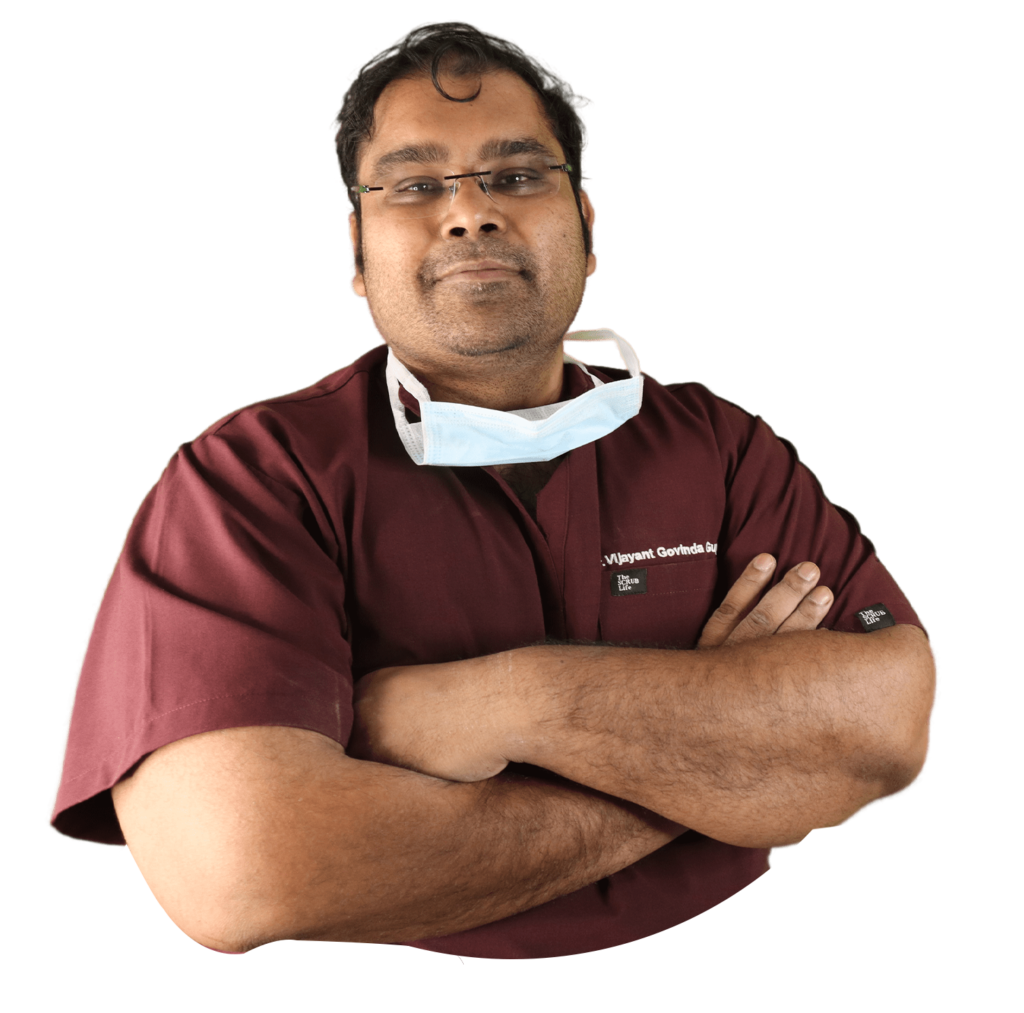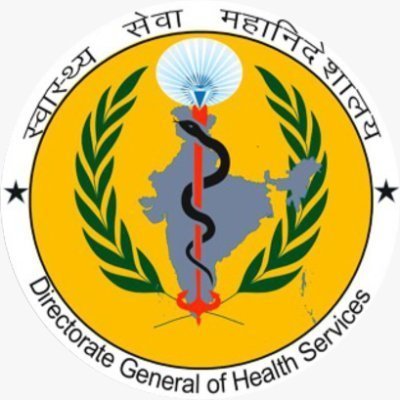Male Infertility Specialist in Delhi: From Zero Sperm (Azoospermia) to Parenthood
Don’t Lose Hope. Fatherhood is Possible. Dr. Vijayant Govinda Gupta is India’s leading male infertility specialist and microsurgeon for Male Infertility treatment in Delhi, India. With over 15+ years of experience and thousands of successful cases, we help men overcome low sperm count, azoospermia, and varicocele to achieve parenthood.
- 10,000+ Consultations
- Transparent Pricing
- High Success in Micro-TESE
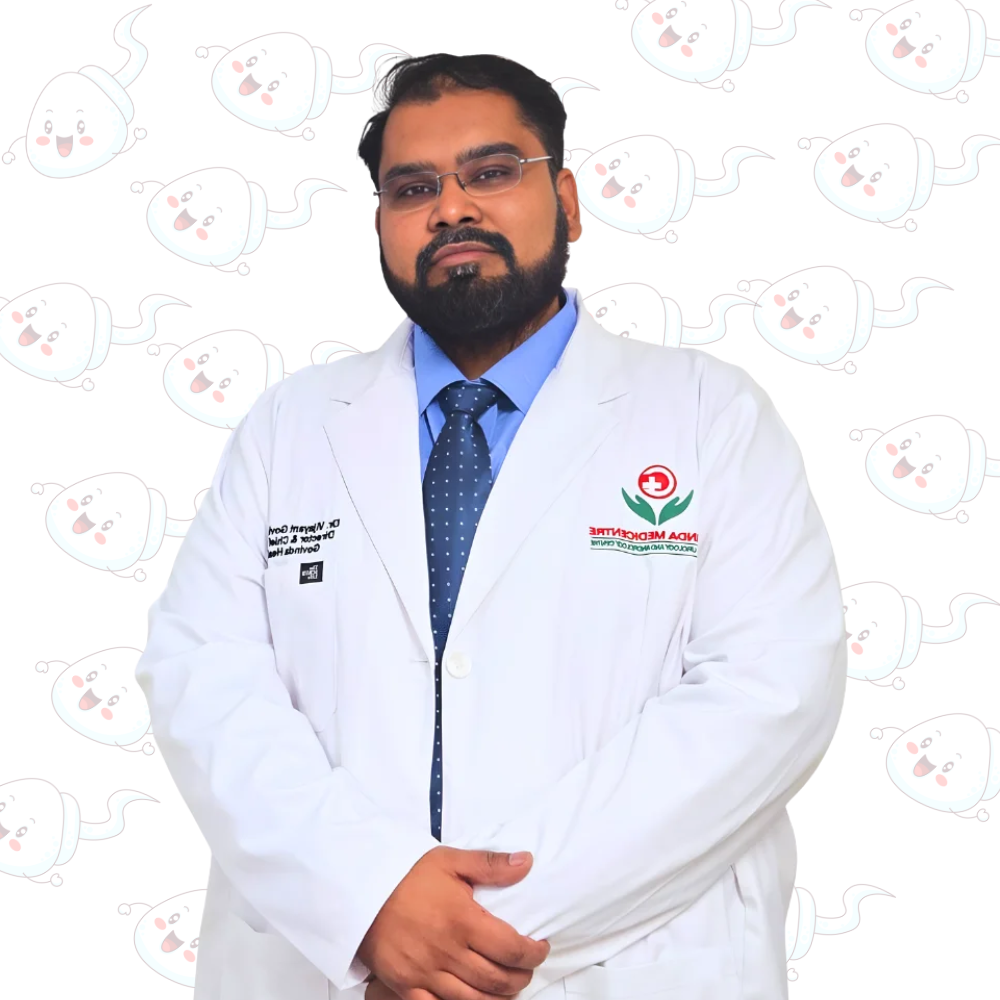
Dr. Vijayant Govinda Gupta, a renowned Urologist, Andrologist, and Male Infertility Specialist in Delhi, provides expert care for Male Infertility Treatment in Delhi, India, offering comprehensive diagnosis and advanced treatment solutions for couples facing fertility challenges. Dr. Gupta’s approach focuses on identifying and addressing the underlying causes of male infertility. Using modern diagnostic tools such as semen analysis, he evaluates conditions including oligospermia (low sperm count), azoospermia (no sperm), and asthenospermia (poor sperm motility). His clinic is widely recognized as one of the trusted centers for Male Infertility Treatment in Delhi, India.
He also manages complex cases involving varicocele, hormonal imbalances, and genetic conditions. Treatment plans are personalized and may include lifestyle modifications, medications, or advanced surgical procedures. Dr. Gupta is highly experienced in techniques such as varicocele surgery and testicular sperm extraction (TESE), making him a leading choice for couples seeking effective Male Infertility Treatment in Delhi, India and helping them fulfill their dream of parenthood.
What is Male Infertility?
Male infertility is the inability of a man to help conceive a child after 12 months of regular, unprotected intercourse. It is responsible for around one-third of infertility cases worldwide. Common causes include low sperm count, poor sperm motility, hormonal issues, genetic factors, and lifestyle habits. With proper diagnosis and treatment, many men can successfully overcome infertility challenges.
How is Male Infertility Diagnosed?
Male infertility is diagnosed through a combination of tests starting with a detailed medical history, physical examination, and semen analysis to check sperm count, motility, and shape. If abnormalities are found, further tests such as hormone evaluations, genetic testing, scrotal or transrectal ultrasound, and sometimes testicular biopsy may be done to identify underlying issues like hormonal imbalance, blockages, or structural problems. These steps help doctors determine the cause and guide treatment options.
Infertility is diagnosed when:
- A couple is unable to conceive after one year of trying without using contraception.
- The female partner has been evaluated and found to have no fertility issues.
- A semen analysis reveals abnormal sperm count, motility, or morphology.
Male infertility can result from problems related to sperm production, sperm transport, or sexual performance. Identifying the specific cause is essential for effective treatment.
Urologist vs. IVF Center
Most IVF centers are run by Gynecologists who treat the female partner. Dr. Gupta is a dedicated Andrologist treating the MALE factor to improve natural conception chances.
Treatments
Male infertility treatment In Delhi, India
As the best male infertility treatment doctor in Delhi, India, we provide you with personalized male fertility treatments to achieve parenthood.

Sperm Retrieval (For Azoospermia)
We offer advanced retrieval techniques like PESA, TESA, and Micro-TESE to help men diagnosed with Azoospermia. Whether using needle aspiration or high-powered microscopic extraction, these procedures are designed to carefully locate viable sperm directly from the reproductive tract or testicular tissue for use in IVF/ICSI, often eliminating the need for a donor.

Medical Management
Surgical intervention can often restore natural fertility by repairing anatomical issues. We perform Microsurgical Varicocelectomy to tie off enlarged veins and improve testicular environment, as well as Vasoepididymostomy to bypass complex blockages in the tubes. These microsurgical procedures aim to restore the natural flow of sperm into the ejaculate.
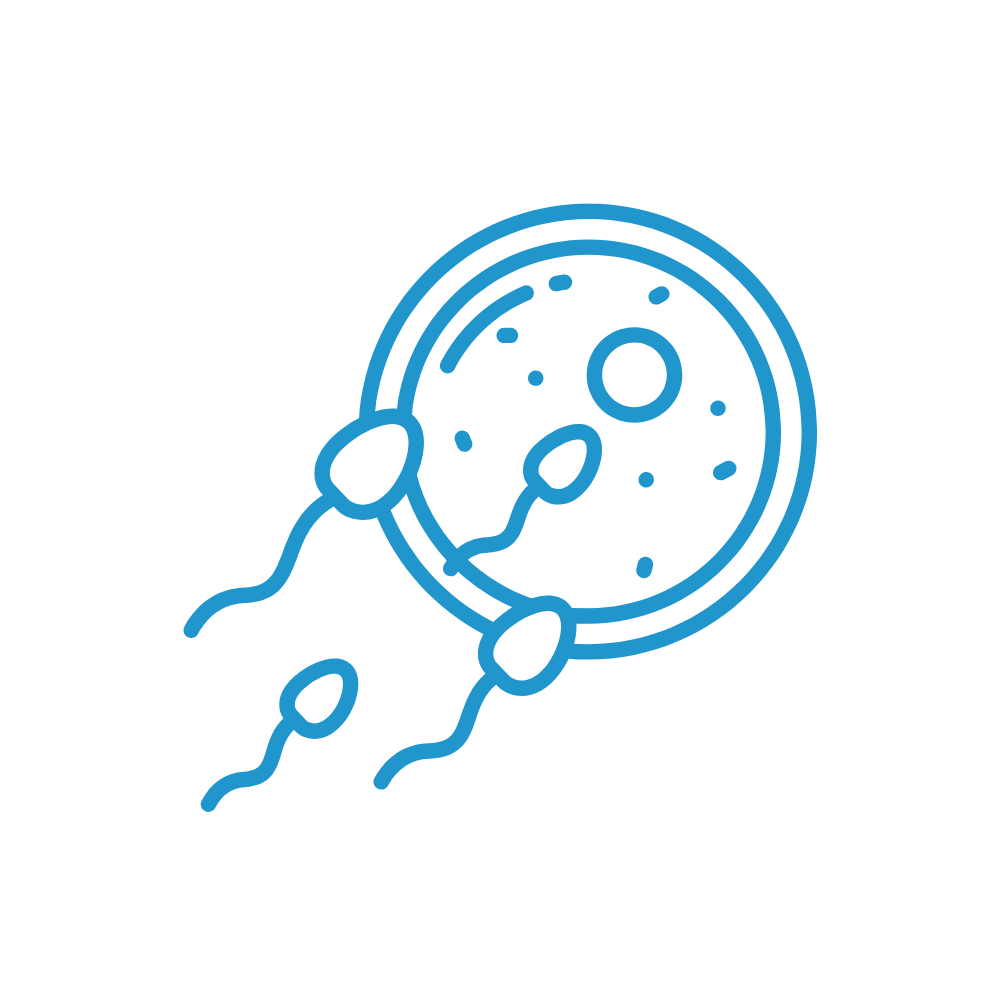
Zero Sperm Count
Not all infertility issues require surgery. We provide specialized Hormonal Therapy to correct imbalances and stimulate sperm production. Additionally, we offer comprehensive guidance on lifestyle changes and nutritional management to reduce oxidative stress and optimize your overall sperm health naturally.
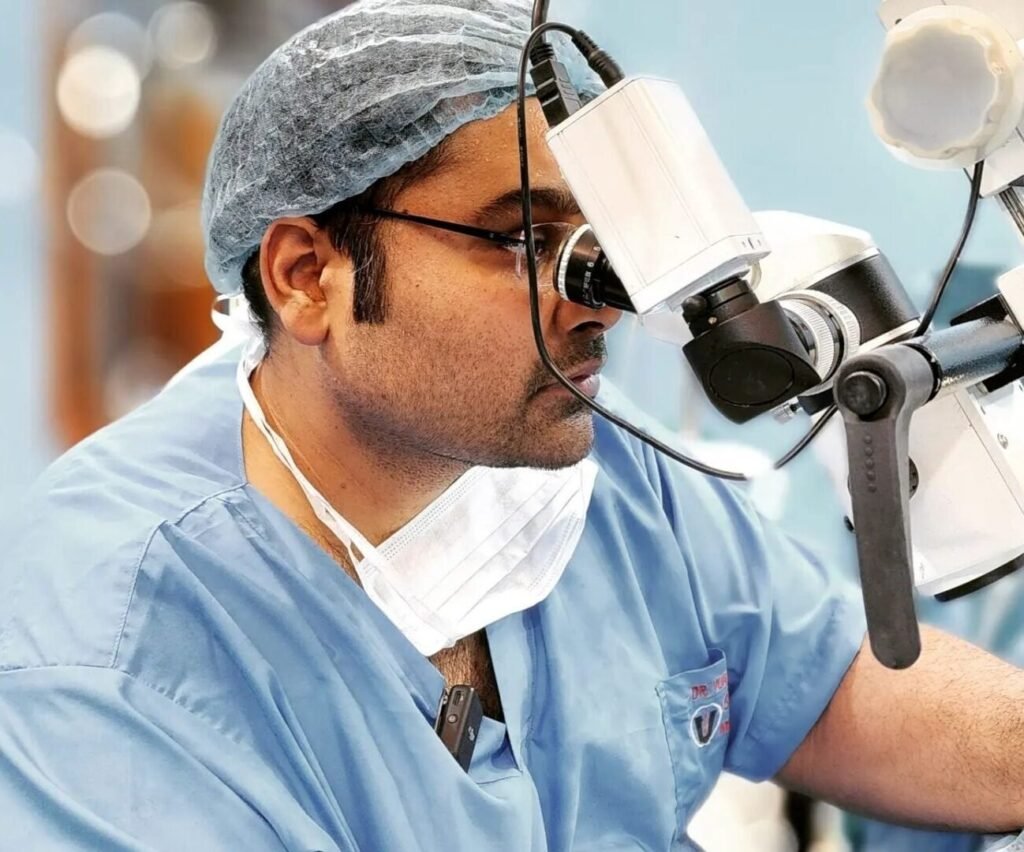
About Doctor
Dr. Vijayant Govinda Gupta
Dr. Vijayant Govinda Gupta is a Urologist–Andrologist in Delhi specializing exclusively in male infertility and microsurgical treatments. He uses precise, microscope-guided techniques with clear, compassionate counselling to help couples understand the real cause of infertility.
Unlike IVF centers where gynecologists treat men, Dr. Govinda is a dedicated Andrologist & Microsurgeon focused only on male-factor treatment—improving natural conception chances and reducing unnecessary IVF interventions.
His expertise includes hormonal evaluation, medical therapy, microsurgical varicocelectomy, VE, TURED, and advanced sperm-retrieval techniques (PESA/MESA/TESE, micro-TESE). He works closely with IVF/ICSI teams and embryology labs to optimize outcomes when needed.
Care philosophy
- Explain every diagnosis and choice in plain language
- Prioritize minimally invasive, evidence-based treatment
- Respect privacy and provide supportive, stigma-free care
- Create stepwise plans that balance success rates, cost, and recovery time
Male Infertility Success Stories
Every patient is unique, and so is our approach. Whether you are dealing with low sperm count, azoospermia, or failed IVF, we create a personalized treatment plan just for you. Join thousands of happy fathers who trusted us with their journey.




frequently asked questions
FAQ On male infertility Treatment
Clear, practical answers to the questions we hear most about male infertility tests, treatments, recovery, and success rates. This guide is educational; your plan will be personalised after evaluation.
Male infertility is difficulty achieving pregnancy due to problems with sperm production, transport, or sexual function. It’s common and often treatable with targeted evaluation and care in Delhi by a urologist/andrologist.
Book a consult if you’ve tried for 12 months (6 months if the female partner is 35+), or sooner with low sperm count, undescended testes history, varicocele, prior groin surgery, chemo, erectile/ejaculatory issues, or no semen on ejaculation.
We start with semen analysis (usually two tests), hormone tests (FSH, LH, testosterone ± prolactin/TSH), and ultrasound (scrotal Doppler; transrectal if low volume). Some men need genetic testing (karyotype, Y-microdeletion, CFTR).
Varicocele, obstruction of the ducts (epididymis/vas/ejaculatory duct), infections, testicular failure, hormonal imbalance, genetics, medications/steroids, and lifestyle factors (smoking, alcohol, obesity, heat, stress).
Yes. Stop smoking, reduce alcohol, reach a healthy weight, sleep 7–8 hours, exercise moderately, avoid heat to the testes, manage stress, and review medicines. Avoid testosterone or anabolic steroids—they can shut down sperm production.
Personalised plans may include medicines, microsurgical varicocele repair, endoscopic TURED for ejaculatory-duct obstruction, sperm retrieval (PESA/MESA/TESA/TESE) with ICSI, and referrals for IVF when appropriate.
Varicocelectomy (microsurgical) treats enlarged scrotal veins that impair sperm. Men with abnormal semen and a palpable varicocele often see improved count/motility within 3–6 months.
The cost depends on the cause. Basic testing (Semen Analysis) costs just ₹1,000. Treatments range from affordable medicines to surgical procedures like Varicocele repair (approx. ₹40k - ₹60k) or TESE, depending on complexity.
s. In Obstructive Azoospermia, we can unblock tubes or retrieve sperm (PESA). In Non-Obstructive cases, Micro-TESE is the most advanced method to find sperm for IVF.
First we determine obstructive vs non-obstructive causes. Many men can still father a child via sperm retrieval (MESA/TESA/TESE) combined with ICSI; retrieved sperm can be frozen.
Mild varicocele may not need surgery. However, if it affects sperm count or causes pain, Microsurgery is the only permanent cure. Medicines cannot fix broken veins.
Yes. Sperm DNA fragmentation and some genetic risks rise with age, but many men conceive with evaluation, optimisation, and appropriate treatment.
Use the Request a Call Back form or Book an Appointment button. Your consultation and reports remain fully confidential.
